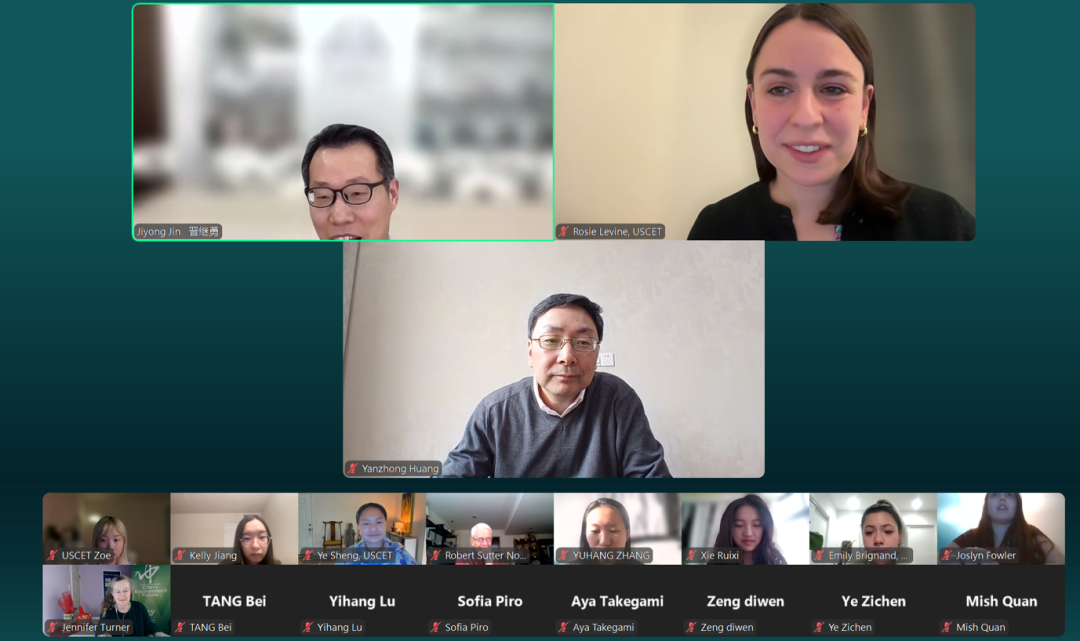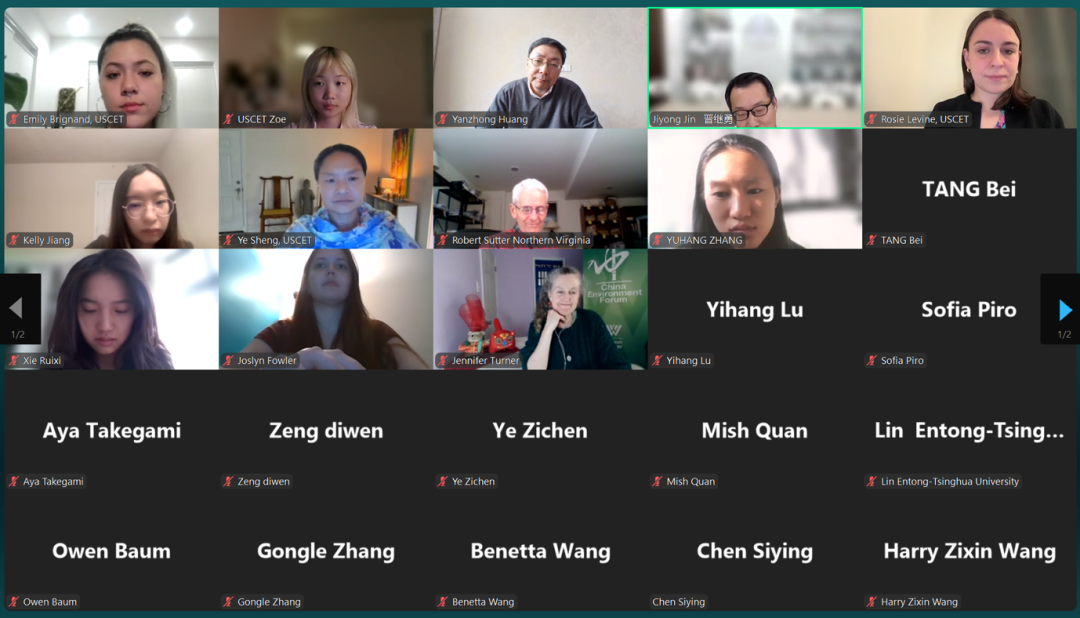On March 29, 2025, from 8:00 to 10:00 AM Beijing time, the third plenary session of the second "Gen Z Dialogue: Seeking Common Ground" series was jointly held by the Center for International Security and Strategy (CISS) at Tsinghua University and the US-China Education Trust (USCET). The event was co-organized by CISS Youth and the Tsinghua Student Association for China-U.S. People-to-People Exchange. The series aims to provide a platform for youth from China and the United States to exchange ideas on key issues such as education, climate, conflict resolution, and public health, promoting mutual understanding across borders.


The session was moderated by Rosie Levine, Executive Director of USCET, and featured opening remarks by Professor Robert Sutter, Professor of Practice at the Elliott School of International Affairs, George Washington University.
The second session focused on public health cooperation and featured keynote speeches by Dr. Yanzhong Huang, Senior Fellow for Global Health at the Council on Foreign Relations and Professor & Director of the Center for Global Health Studies at Seton Hall University, and Professor Jiyong Jin, Vice Dean and Professor at the School of International Relations and Public Affairs at Shanghai International Studies University.
Drawing from his experience organizing the “Global Health Governance Roundtable,” Dr. Huang shared his insights on facilitating academic exchanges and joint research between Chinese and American scholars. He emphasized how academic dialogue platforms can help experts build consensus in areas such as vaccine development and infectious disease prevention, ultimately laying the groundwork for policy coordination.
Professor Jin, referencing his academic exchange at Yale University, discussed how to overcome linguistic and cultural barriers and build trust and collaboration with international scholars.
During the third session, student representatives from each group provided progress updates based on their work since the last plenary. They shared background information, project goals, and current outcomes, followed by feedback and suggestions from the attending instructors. Each group then broke into smaller discussions.
Under the guidance of Professor Tang Bei, the Public Health Group reviewed the results of their recent mental health survey and began drafting the presentation plan for the final session. They discussed the target audience of their upcoming health manual and emphasized the inclusion of mental health assessment tools and coping strategies tailored for Chinese students studying in the U.S.
To enhance the appeal and impact of their final presentation, the group proposed incorporating video content and data visualization. Both Professor Tang and group members agreed that the next phase of work should focus on deeper data analysis and prompt content completion through strengthened team collaboration.
The group outlined their next steps, which include organizing interviews with Chinese and American scholars, experts, and students. Members assigned tasks such as drafting invitation emails and setting a schedule for interviews and fieldwork. Their final project aims to highlight the potential of grassroots cooperation between the two nations in tackling global challenges by combining in-depth interviews and street-level engagement.
The Education Group finalized their survey theme as “Current Status and Differences in U.S.-China History Education.” The survey will focus on ten key historical events, such as the Civil Rights Movement, the 2008 Financial Crisis, and Nixon’s visit to China. It seeks to assess student understanding and knowledge across both countries.
The questionnaire will also explore teaching methods, resource utilization, memorable classroom activities, learning perspectives, and differences in historical narratives. The team plans to distribute the survey across diverse school settings and conduct a categorized analysis to gain a comprehensive understanding of the contrasts in history education. Over the next few weeks, the group will collect responses and compile an analytical report.
Chinese participants presented the results of their newly developed “Self-Assessment Questionnaire on Water and Electricity Use by Tsinghua Students,” aiming to better understand student energy habits through data collection. U.S. team members also shared their recent campus interviews and fieldwork.
Following both teams’ updates, Professor Jennifer Turner, the project advisor, led a discussion to define the work plan for the coming month. She emphasized that the group’s goal extends beyond raising awareness—it should inspire individual responsibility and action toward energy conservation. Turner encouraged the group to make environmental issues “visible, tangible, and worthy of attention,” integrating sustainability into everyday life.
